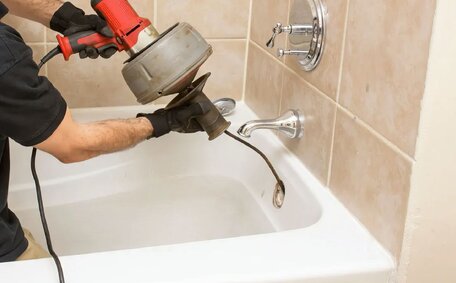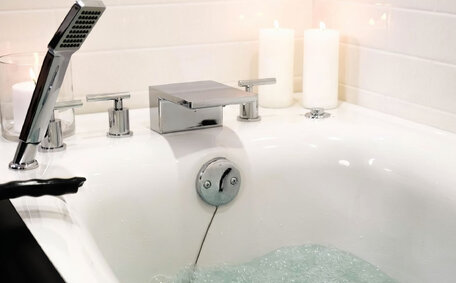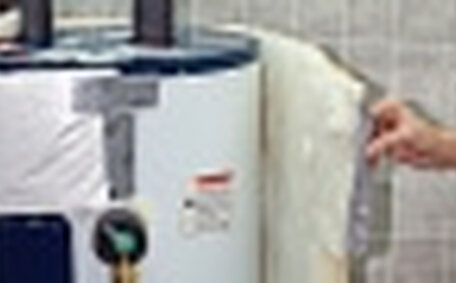Introduction to Cooking with Gas
Gas cooking is favoured by both home and professional chefs due to its multiple benefits. Gas stoves provide responsive, precise temperature control from open flame burners that allow quicker cooking times. Gas ovens feature even heat distribution that can lead to better results, achieving delicious dishes faster than other methods.
Gas appliances also provide cost savings and environmental benefits.
Our licensed technicians expertly manage all your natural gas requirements, from new line installation to stove hookups and leak repairs. We ensure the safe and efficient operation of your gas appliances; learn more about our expert services.
Faster Cooking Times
A major benefit of gas cooking is faster preheating and cooking times, notably on the stove top compared to electric counterparts. Gas stove burners and ovens heat up more quickly thanks to the direct application of open flame. You can boil water, sear meat, or bake casseroles faster than on electric ranges, demonstrating the superiority of gas.
Gas stoves often halve cooking times in many instances, as confirmed by industry experts. Instead of waiting up to 10 minutes for an electric cooktop to reach temperature, gas burners offer a ready-to-use cooking surface. Gas ranges feature rapid heating and cooling, giving you precise control to quickly adjust heat levels while cooking.
In gas ovens, the flames envelop the oven cavity, providing quicker heat than the slower electric oven elements. This leads to faster preheating, allowing you to get dinner or baked goods cooked quicker. Ranges with both a gas cooktop and gas oven often offer the speed advantage for all your cooking tasks.
Precise Temperature Control
Cooks highly value the precise temperature control offered by gas burners. Gas flames instantly respond to adjustments, enabling swift heat control for your pots and pans. This precise temperature control isn’t achievable with electric cooktops.
The open flames of gas burners can help offer a visual indicator for observing how the strength of heat affects your cookware. You can clearly see when the fire rises and falls based on stove knob adjustments.
Monitoring flame size and activity makes it easy to transfer heat optimally for tasks like simmering sauces or sautéing vegetables.
Professional chefs prefer gas cooking as they can easily adjust the flame to immediately respond due to this responsiveness and exacting command over stove temperatures. Cooks can effortlessly tweak heat up or down on your gas stove to perfectly time multicourse meals.
Home cooks also appreciate gas stove precision for simpler tasks like rapid boiling water for pasta or pasta or stir-frying ingredients in a wok.
Enhanced Flavors from Open Flame
One of the distinct advantages of cooking over a live gas flame is the enhancement of flavours and textures. Gas cooking imparts a charred, caramelised finish that enhances the complex natural tastes of food.
The direct open flame from cooking natural gas can char meats, vegetables, or other ingredients, imparting smoky, savoury flavours from the caramelising natural juices. This flavour boost known as the “grill taste” enhances everything from stir fries to steaks, assuring every meal is a delicious meal.
Even with pots and pans, food on a gas cooktop still reaps the benefits of direct flame. As natural juices hit the hot surface below, new compounds form to bring out sweet, toasted flavours in your food. The high heat from a gas burner can provide better searing and browning reactions for richness.
So while electric appliances rely on hot metal coils or ceramic glass, when you’re cooking with gas, you’re utilising real fire. This live fire heat evenly touches the sides pan, offering better conditions for caramelization and the Maillard reaction to improve taste. Your dinner guests will notice brighter, more pronounced flavours in everything from weeknight pastas to showcase roasts or fish fillets.
High Heat Capabilities
Gas stoves stand out for their ability to reach cooking temperatures of up to 600°F or more. This level of extreme heat offers advantages for tasks like stir-frying, pan-searing, or when using cooking vessels like woks that require intense heat.
High gas stovetop temperatures allow foods to brown, blacken, and caramelise faster. Meat develops a flavorful sear, while vegetables and diced aromatics like garlic or ginger transform to become infused, charred accompaniments. Gas heat, surpassing electric stoves, enables a more complex development of flavours.
Temperature extremes also enable chefs to adjust temperature for alternative cooking techniques, suited to the hotter burn of gas compared to other fuel sources. Wok cooking over a roaring open flame can quickly allow tossing and rolling food around at blazing speeds to impart smokiness. Pan-searing on a ripping hot cooktop surface caramelises steak juices into a flavorful crust.
Boiling water rapidly brings starch-thickened sauces together.
While electric or induction may struggle reaching optimal heat for these purposes, gas excels at delivering the extreme temperatures some dishes demand. Cooks wanting to unleash the full potential of flames for Asian stir-fries, blackening Cajun cuisine, or simply faster boils will appreciate the power of gas.
Cost and Energy Efficiency
Cooking with gas is more cost-effective than electric options, especially for those who cook frequently. Gas range cooktops generally use less energy to operate compared to an electric range, with potential reductions of around 30-40% on your energy bills.
Increased energy efficiency is a key factor in the gas versus electric debate, as the burners only need to directly heat the pan or pot via an open flame. By contrast, electric coils or radiant cooktops waste energy warming the air and countertop surface instead of just your cookware.
The lower energy requirements and benefits gas cooking brings add up over time. Industry estimates calculate a gas stove can save $40-75 annually depending on usage levels. This efficiency advantage means that between gas electric options, Gas ranges and cooktops often have a lower lifetime cost and operate faster.
From an environmental impact perspective, natural gas stoves also perform better than electric. LPG gas combustion emits up to 45% less CO2 than coal-fired electricity that powers electric ranges. Opting for gas cooktops reduces your carbon footprint.
With rising energy prices, dual fuel ranges that leverage the efficiency of gas for cooking duties deliver welcome savings for households and commercial kitchens alike, making them a smart choice. Gas stoves and ovens are the way go as they simply cost less to operate long-term.
Reliability in Power Outages
Gas stoves function during power outages without electricity, providing a clear advantage. While electric and induction cooktops are turned off when the power goes out, cooking lpg stoves with burners fueled by propane can often continue functioning.
This capability provides your home with uninterrupted cooking abilities to boil water, simmer canned food, or prepare hot drinks, a benefit electric stovetops can’t match when faced with electricity disruptions. Commercial kitchen operations also benefit from avoiding costly downtime or food waste with gas appliances able to operate off-the-grid.
The typically manual pilot light on gas stoves allows continued cooking during storms or blackouts. Combined with a gas oven able to light manually, all core cooking duties can carry on despite power interruption. Gas cooking provides superior outage protection, keeping your kitchen operational under any conditions. To learn more or to get professional advice, feel free to call us; we’re always here to assist you.
Easier to Clean
Gas stoves are easy to clean and maintain, especially compared to electric models. Their smooth, sealed flat surface embodies the benefits cooking with gas has in terms of easy cleanup during and after meal preparation. Many gas cooktops are made from durable stainless steel, resisting scratches and stains.
Cleaning a gas cooktop involves letting it cool, then wiping off debris with a soft cloth, warm water, and mild soap.
Avoid abrasive scouring pads; instead, simply wipe up any mess to protect the finish. For stuck-on spills, use a plastic or wooden scraper to gently lift residue before wiping clean.
Over time, gas stove grates may develop a patina but can be restored by scrubbing with baking soda paste and water. For ovens, keep your appliance pristine by gently removing built-up grease deposits with a baking soda solution during periodic deep cleaning sessions every few months. These basic maintenance practices should include attention to the inside oven, ensuring its kept in prime condition for optimal performance over the years.
Durability and Lifespan
Noted for their durability, gas stoves typically outlast electric models. For any enquiries, please feel free to call us. The average gas range has a lifespan of 15-20 years, while electric coils tend to burn out or lose efficiency after 10 years or less.
This enhanced lifespan for gas appliances can be attributed to simpler mechanics with fewer breakable parts. Gas stoves mainly rely on manual knobs, ignition switches, and durable sealed burners made from brass, steel or cast iron. Without fragile electronics or heating elements that other cooking methods may rely on, gas ranges avoid common failure points.
The reduced need for repairs or replacement parts keeps gas stoves cooking for well over a decade or more. Their uncomplicated design withstands constant use in busy household kitchens, a notable difference between gas and electric appliances. With proper care and maintenance like periodic burner tune-ups and oven interior cleans, gas ranges provide reliable service for the long haul.
Homeowners will find gas stoves’ superior lifespan offer a better return on investment for new kitchens. Rather than replacing an electric stove in under 10 years, an efficient gas range can keep cooking for the long run.
Preferred by Professional Chefs
More than 90% of professional chefs prefer cooking with natural gas over electricity. This overwhelming preference comes down to the precise control and instant adjustments gas allows.
Electric stoves lack this level of exactness required in professional kitchens. The open fire also provides visual cues on flame strength.
With the appropriate gas range, chefs can promptly adjust the heat to suit each stage of a complex dish. The immediate response of an open gas flame gives chefs superior command over temperatures, which can precisely cook every dish.
Chefs adeptly handle woks and pans over roaring gas flames to impart perfect chars and smoky flavours. The extreme heat of commercial gas lets them rapidly boil, sear, blacken or stir-fry ingredients. Many iconic cooking styles like flame-licked Neapolitan pizza rely on gas’s blistering heat more than any other heat source.
Electric stovetops tend to fall short in delivering the heat intensity provided by gas.
Home cooks value gas for its convenience, while chefs find it essential for culinary excellence. Gas powers a diverse array of the world’s finest kitchens, from renowned French restaurants to artisan pizzerias. For precise, responsive, and high-heat cooking, gas stoves and ovens are the preferred choice of professional chefs.






